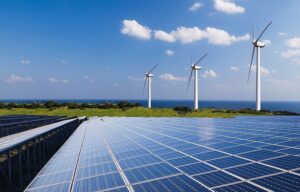What sustainable innovations will transform the energy sector?
With the growth of artificial intelligence (AI), additive manufacturing, automation and other technologies, the transition to a cleaner future may be easier. Many advances indeed help to control and monitor infrastructures and improve the environment, replacing old equipment with newer and more efficient solutions. Infrared cameras , for example, indicate damage to solar installations from overheating, and pressure transmitters can be used in hydrogen applications to examine the force of extension of a liquid or gaseous sample.
Thanks to advances in technology, it is possible to monitor and measure more elements, to allow the whole world to build a more sustainable environment.
1. Solar powered trains
Thomas A. Edison, one of the great inventors of the power generation industry, said, “I would invest my money well in the sun and solar energy. What a source of energy! Hopefully we won’t have to wait until we run out of oil and coal before we get started.” This proves the enormous potential of solar energy.
However, even though solar energy is one of the most popular renewable energies, it is not as popular as fossil fuels. According to the International Energy Agency (IEA) , 29% of the world’s electricity is generated by renewable energy, and solar energy is the third largest renewable electricity technology behind hydroelectricity and onshore wind energy, after overtaking bioenergy in 2019.
Many people agree with Edison and are trying to find other ways to use solar power, including solar powered trains. This mode of transport can work all day without recharging. As the BBC noted in its Solar Railway video (see below), the train sends 75% of the energy it generates back to the grid.
2. Solar panels made from food waste
The energy sectors are constantly improving, especially with solar panels made from food waste. This revolutionary material was created from luminous particles of discarded fruits and vegetables. It was designed by engineering student Carvey Ehren R. Maigue, who works for AuReus, and his concept won him the James Dyson Award . Isn’t this the most sustainable concept on the market?
3. Bladeless wind technology
Besides the development of new technologies, there are more advanced solutions for renewable energy sources, including wind turbines. Everyone knows or has seen the common wind turbines which are usually large and can be installed at sea and on land as we have written in this article .
An elastic rod is used to fix the 3 m high bladeless turbine vertically to the ground. It is designed to oscillate in the wind speed range, and the consequent vibrations produce energy. These bladeless turbines can be used in urban or residential areas, without the space needed to build conventional wind farms.
4. Batteries verre lithium
The importance of batteries in the transition to renewable energy is enormous. In this article , we have focused on the lithium-ion battery, John Goodenough’s innovation. Goodenough is dubbed the “father of lithium-ion batteries” and won a Nobel Prize in Chemistry for this invention. However, this did not stop him from contributing to the development of a glass lithium battery, whose capacity increases with age and whose energy density is twice that of lithium-ion batteries.
They also operate at lower temperatures, recharge faster, cost less, are safer (non-flammable) and store more energy over time.
5. Rechargeable tires
They would be propelled by the heat generated by friction on the road. Even when stationary, these tires can always be recharged.
And that’s not all: imagine a tire that adapts to weather conditions, road conditions or the way you want to travel. This makes it fully biodegradable and incredibly durable





